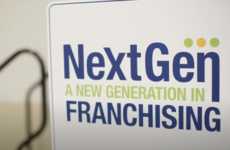
This Generation Infographic Looks at Differences Between Age Groups
Alyson Wyers — September 3, 2015 — Life-Stages
References: nextgeneration.ie & designtaxi
This generation infographic displays the differences between those a part of Generation X, Y and Z, specifically at work. From NextGeneration Recruitment, 'Generation X versus Y versus Z: Workplace Edition' examines attitudes and skill sets.
Generation X consists of those born between 1966 and 1976, where as Generation Y contains 1977 to 1994 and Generation Z is people in 1995 to 2012.
When it comes to generational gaps, the generation infographic looks at educational level, relevant professional qualifications, skills and working mottos. The chart also looks at key characteristics of each group. While 70% believe Generation X are the best workers overall, 68% feel Generation Y is most committed to succeed and Generation Z are digital natives, leading 46% to see them as tech experts.
Generation X consists of those born between 1966 and 1976, where as Generation Y contains 1977 to 1994 and Generation Z is people in 1995 to 2012.
When it comes to generational gaps, the generation infographic looks at educational level, relevant professional qualifications, skills and working mottos. The chart also looks at key characteristics of each group. While 70% believe Generation X are the best workers overall, 68% feel Generation Y is most committed to succeed and Generation Z are digital natives, leading 46% to see them as tech experts.
Trend Themes
1. Generational Workplace Differences - Identifying and understanding the differences between Generation X, Y, and Z in the workplace presents opportunities for tailored strategies and employee engagement initiatives.
2. Skills and Qualifications - Recognizing the varying skill sets and professional qualifications of different generations in the workforce creates opportunities for targeted recruitment and training programs.
3. Digital Natives and Tech Experts - The growing presence of Generation Z as digital natives and tech experts opens doors for innovations and disruptive technologies catered towards their preferences and needs.
Industry Implications
1. Human Resources - Human resources professionals can leverage generational differences in the workplace to develop effective talent management strategies and improve employee retention.
2. Education and Training - The education and training industry can capitalize on the varying skill sets and qualifications of different generations by offering specialized courses and programs tailored to each group.
3. Technology and Innovation - The technology and innovation sector has an opportunity to create disruptive solutions that cater to the preferences and needs of Generation Z as digital natives and tech experts.
6.6
Score
Popularity
Activity
Freshness























